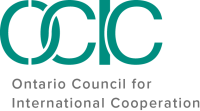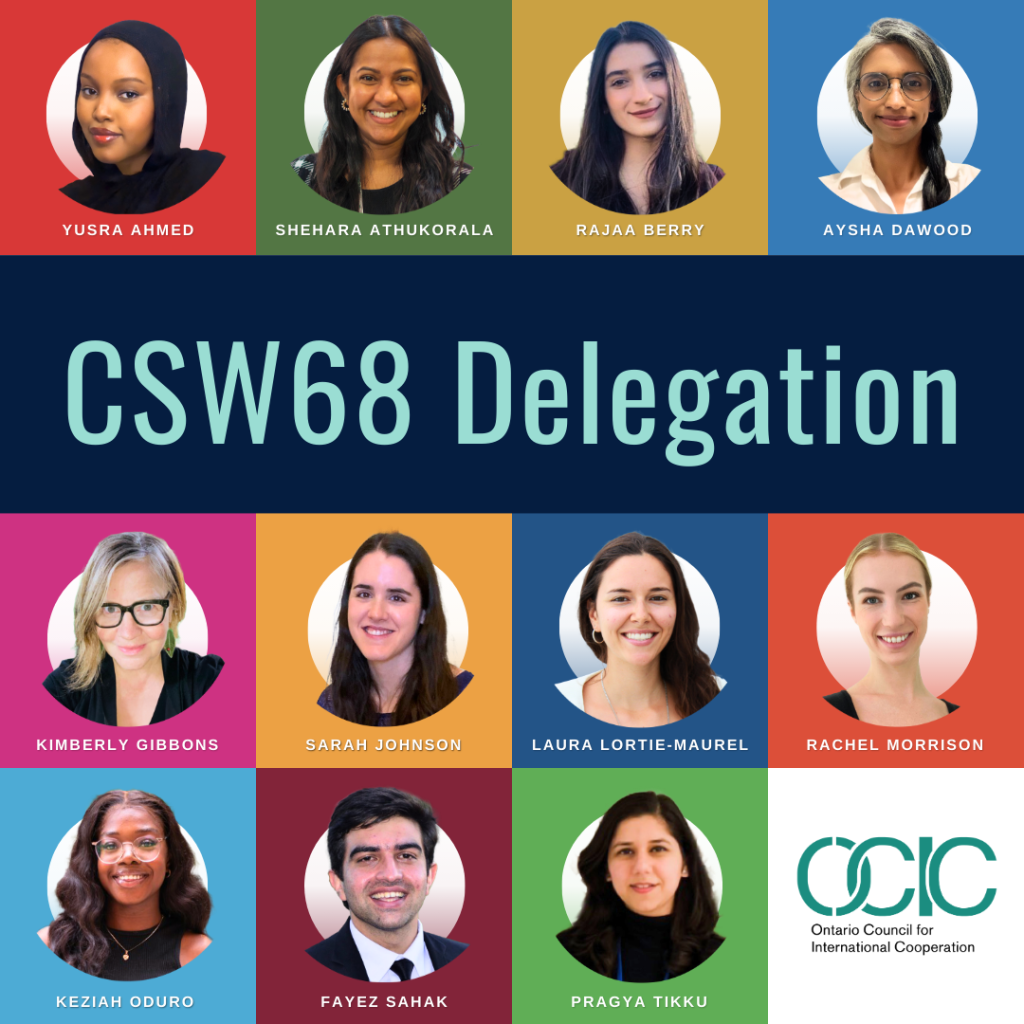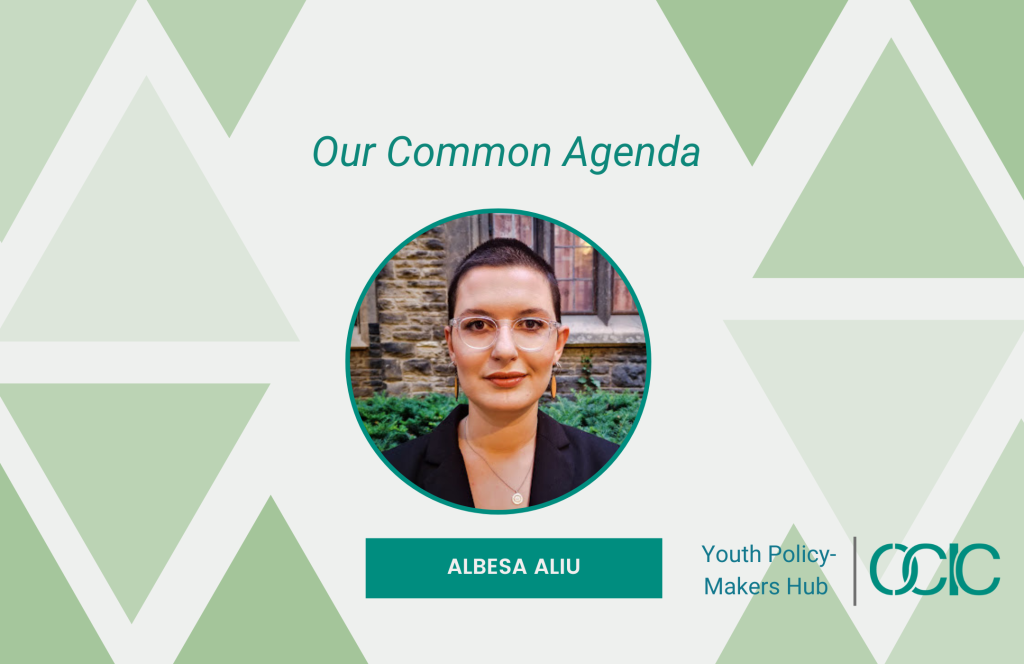
Our Common Agenda
By Albesa Aliu | December 16, 2021
As a young activist seeking change, oftentimes common world issues seem too complex, almost impossible to deal with. And, that’s true, they are. But there are also ways to bring ourselves together and organize to advocate for change. Not only on a national, but global level, too.
Organizations like Ontario Council for International Cooperation have been great spaces facilitating and creating opportunities for youth to get engaged with real life issues, be it international development or policy on a local level. I am grateful for many opportunities to participate as part of the Youth Policy Hub, among them, connections to youth activists that were organizing the focus group on ‘Our Common Agenda’.
As a Youth Policy-Makers Hub Advocate with the Ontario Council for International Cooperation, I had the chance to be involved in all areas of the sustainable development goals with the right people at the right time, to discuss, organize, and influence topics that youth care about. In this blog, I will share my experience participating at the focus groups with Canadian youth for ‘The Common Agenda’, a report requested by the secretary of the United Nations (UN), in which youth from 10 countries express their ideas and agenda for the future.
Young and Wise
One would think that young people may not have the expertise and power to influence fields that affect us all. Youth are often left out of decision-making spaces based on these false assumptions. Yet, it is youth that have been ringing the bells of consciousness, raising awareness about climate change, education, and inequalities across the world. It is younger generations leading walks to ask for accountability, in spaces that are often not accessible for them.
As a member of the Youth Policy-Makers Hub, I was able to connect with young activists, participating in various fields, students, all passionate and caring for the sense of direction Canada’s policies have not only on Canadians, but the world as well.
Youth in Action
Along with fellows and allies of Youth Policy-Makers Hub and other Canadian organizations, we shared our perspectives on six themes, including education and skills, jobs and economic opportunities, active citizenship and participation, sustainable futures, listening and working with young people. On the topic of education, I suggested that we use the disruption caused by COVID-19 to actively innovate our education system so that what is taught aligns with the real world. Some participants emphasized the need to focus on financial literacy in schools, as often what we learn does not prepare us for financial struggles in real life. Other colleagues suggested providing accessible internet and devices to all younger people in the Global South so that more people can have access to education. These were only a few suggestions among a fruitful and rich national conversation with Canadian youth.
On the topic of active citizenship, I suggested that more efforts need to be put into voting, such as targeted communication that makes politics easy for youth to understand, so that political cynicism does not take away youth’s potential to get involved. I strongly argue that voting should be a day off, so that people don’t have to think about losing pay for participating in an important process that will define their present and future. On that note, I suggested that more UN programs are needed to train youth to get involved in politics and sustainable development.
It was a very informative experience to hear from other participants that contribute to different fields, such as entrepreneurship, education, health. They all brought their lens on how our common agenda should be shaped based on their professional and lived experience. Thinking of suggestions on a ‘global scale’ was enriching, as it is really in us to participate, bring our vision and ideas, and push for them to become our reality.
The consultation was also reimbursed, which was appreciated by all participants, as oftentimes organizations take advantage by demanding youth work and skills for free, when youth would benefit the most by compensation. In that sense, that ensures that participation is not left only to those that can afford to volunteer and spend their time for public discussions.
Reporting Loud and Clear
The findings of our focus group along with participants for the other 9 countries were prepared into a report with key findings, published in September 2021. After the report, all participants, and hosts of these national conversations, were able to meet virtually with the UN Deputy Secretary General Her Excellency Amina Mohammed, where main findings were shared. We had the chance to ask questions and share our ideas.
In that little time, we had a chance to push for ideas that matter to youth. In this global conversation, we could sense our responsibility to make the changes that we need, even if that means talking to people that are not interested to hear us, as we continue to take action.
Read the final report [English] here.
Read the final report [multiple language translations] here.







